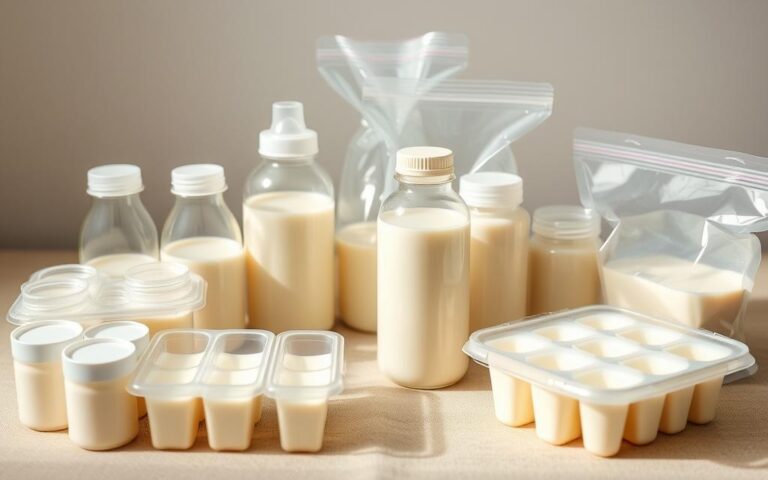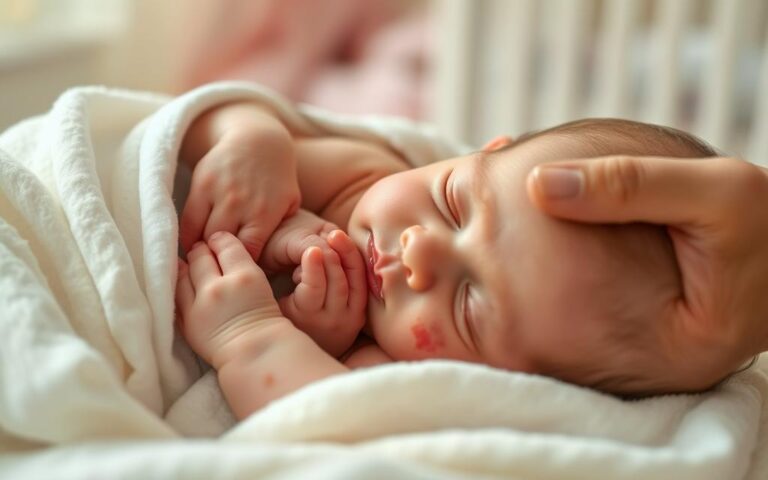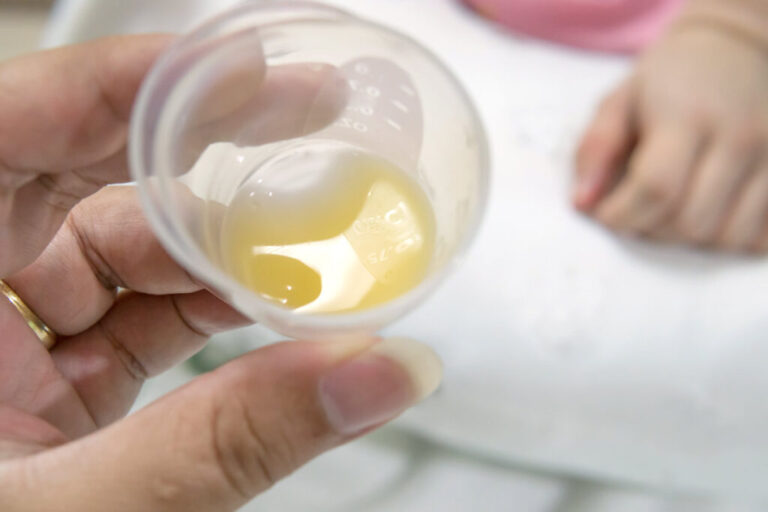Breastfeeding and Alcohol: Is It Safe to Drink?

As a breastfeeding mom, knowing how alcohol affects breast milk is key. It’s important to understand the risks of drinking while nursing. This ensures your baby stays healthy.
Experts say there’s no safe amount of alcohol for breastfeeding moms. But, having up to one standard drink a day, two hours before nursing, is okay. It’s all about keeping your baby safe from alcohol’s effects.
Safe drinking while breastfeeding means knowing how alcohol impacts milk. Taking steps to limit your baby’s exposure is vital. This way, you can enjoy nursing without worrying about your baby’s health.
Remember, the legal limit for driving is 80mg/100ml in England, Wales, and Northern Ireland. In Scotland, it’s 50mg/100ml. Staying under this limit helps protect your baby from alcohol’s dangers.
Key Takeaways
- There is no safe amount of alcohol defined for breastfeeding mothers, but moderate drinking is not known to be harmful.
- Alcohol passes freely into breastmilk, reaching levels approximately equal to blood alcohol levels.
- Drinking while nursing can affect milk supply and potentially harm your baby.
- It’s essential to prioritize breastfeeding safety and consider the risks of alcohol consumption.
- Mothers who are sober enough to drive are generally considered sober enough to breastfeed.
- Occasional light drinking while breastfeeding has not been shown to have adverse effects on babies, but heavy or regular drinking may lead to decreased growth and development.
Understanding the Relationship Between Alcohol and Breast Milk
When a breastfeeding mom drinks alcohol, it can get into her breast milk. This can affect her baby’s growth, development, and sleep. The Centers for Disease Control and Prevention (CDC) says there’s no safe amount of alcohol for breastfeeding moms.
The amount of alcohol in breast milk is similar to the mom’s blood alcohol level. Studies show that 5 to 6 percent of the mom’s alcohol level gets into the baby’s bloodstream through the milk.
The processing of alcohol in breast milk is key for breastfeeding moms. Alcohol levels in breast milk peak 30 to 60 minutes after drinking. It can stay in the milk for two to three hours after drinking.
The concentration levels of alcohol in breast milk match the mom’s blood alcohol level. For example, a blood alcohol level of 0.05 percent means the milk will also have that level.
To reduce alcohol exposure for the baby, wait at least two hours after drinking before nursing. The time alcohol stays in breast milk varies. It can be 2 to 3 hours for one drink or 6 to 8 hours for three drinks.
Knowing how alcohol and breast milk relate is vital for breastfeeding moms who want to drink safely.
The Science Behind Alcohol’s Impact on Milk Production
The American College of Obstetricians and Gynecologists (ACOG) says too much alcohol can mess with the milk ejection reflex. This can lower milk production. Alcohol changes the hormones that happen during breastfeeding. Knowing how alcohol affects milk production helps mothers make better choices.
Studies show alcohol levels in breast milk peak 30 to 60 minutes after drinking. It can stay in breast milk for 2 to 3 hours for each drink. This is important for mothers who want to enjoy a drink while nursing safely.
- Too much alcohol can mess with the milk ejection reflex.
- Drinking too much can lower milk production and shorten breastfeeding.
- Drinking a little (like 1 glass of wine or beer a day) is usually safe. Wait 2 to 2.5 hours before nursing.
It’s important for breastfeeding mothers to know how alcohol affects milk production. By understanding this, mothers can make smart choices about drinking. This way, they can keep their baby safe and enjoy breastfeeding without worry.
Immediate Effects of Alcohol on Your Baby
When a breastfeeding mom drinks alcohol, it affects her baby right away. The alcohol moves to the baby through the milk, changing how they eat. The Mayo Clinic says this can mess with the baby’s growth, development, and sleep. Alcohol levels in milk peak 30-60 minutes after drinking, causing changes in the baby’s behavior and growth.
Alcohol in milk can mess up a baby’s eating habits. This can lead to less milk, poor weight gain, and developmental issues. Also, alcohol can disrupt a baby’s sleep. Even one drink by the mom can cause sleep problems for the baby, making life hard for both.
- Increased crying and arousal
- Decreased milk intake and weight gain
- Sleep disruption and developmental concerns
It’s key for breastfeeding moms to know these effects and take steps to protect their babies. By understanding the risks of drinking while breastfeeding, moms can make choices that keep their babies healthy and happy.
Breastfeeding and Alcohol: Is It Safe to Drink While Nursing?
As a breastfeeding mom, it’s key to think about your baby’s safety when you drink. The Centers for Disease Control and Prevention (CDC) says moms should avoid alcohol or wait 2 hours after drinking. This helps keep your baby safe from alcohol.
Alcohol can get into breastmilk and harm your baby. It can make them sleepy, weak, and gain unhealthy weight. Drinking too much can hurt both you and your baby, causing sleep and growth problems.
The American Academy of Pediatrics (AAP) advises moms to limit alcohol to 1 standard drink a day. They should drink it at least 2 hours before nursing. This helps keep your baby safe.
Pumping breastmilk after drinking doesn’t get rid of alcohol faster. But, it can prevent engorgement. The alcohol in breastmilk goes down as it does in your body. So, wait 2 hours for every drink before nursing.
For breastfeeding moms, keeping your baby safe is top priority. Follow the guidelines and watch your alcohol intake. This way, you can create a healthy space for your baby. If you’re worried about drinking while breastfeeding, talk to your doctor for advice.
Safe Drinking Guidelines for Nursing Mothers
As a nursing mother, knowing the safe drinking guidelines is key. The Dietary Guidelines for Americans says a standard drink is 12 ounces of 5% beer, 8 ounces of 7% malt liquor, or 5 ounces of 12% wine. It’s important for nursing mothers to know the safe drinking rules and the waiting times before breastfeeding.
To keep your baby safe, wait 2-3 hours after drinking before breastfeeding. This time lets your body process the alcohol. It also lowers the chance of passing it to your baby through breast milk. Nursing mothers should watch their alcohol intake to avoid harming their babies’ development.
- Avoid binge drinking, as it can harm your baby
- Drink in moderation to keep alcohol levels low
- Consider expressing milk before drinking to keep a safe supply for your baby
By following theseguidelinesand being careful withwaiting times, nursing mothers can enjoysafe drinking. This way, they can minimize risks while breastfeeding.
Myths vs. Facts About Alcohol During Breastfeeding
There are many myths about alcohol and breastfeeding. One myth is that pumping milk after drinking alcohol gets rid of it faster. But, the National Library of Medicine says this isn’t true. Alcohol moves through breastmilk just like it does through the blood.
Here are some important facts to know:
- The CDC says it’s okay to have one drink a day while breastfeeding.
- If your BAC is 0.08 percent or higher, any milk you pump should be thrown away.
- It takes about 2 to 2.5 hours for one standard drink to leave breast milk.

Knowing the facts about alcohol and breastfeeding helps mothers make better choices. If a mom is legally allowed to drive after drinking, her milk is safe for her baby.
Pumping and Dumping: When Is It Necessary?
Many breastfeeding moms wonder about pumping and dumping. The Mayo Clinic says it’s not needed to remove alcohol from breast milk. But, it can help with engorgement and keep milk supply up. It’s good for moms who’ve had alcohol and worry about their baby.
The American Academy of Pediatrics (AAP) suggests waiting two hours after drinking before breastfeeding. If a mom had a small amount of alcohol, she might not need to pump and dump. Remember, pumping and dumping doesn’t get rid of alcohol in the blood. It just helps with engorgement or getting rid of milk with alcohol.
- Pumping to relieve engorgement and maintain milk supply
- Dumping milk that may contain high levels of alcohol
- Waiting at least two hours after consuming alcohol before breastfeeding or pumping
Heavy drinking can lower milk supply and harm a baby. Breast milk with too much alcohol can make a baby sleepy, weak, and gain weight slowly. By following best practices and watching alcohol intake, moms can keep breastfeeding safe and healthy for their babies.
Planning Ahead: Tips for Social Events
Being a breastfeeding mom can make going to social events tough, mainly because of alcohol. The Centers for Disease Control and Prevention (CDC) suggests that moms plan ahead. They should express milk before going and have someone sober watch the baby. This keeps the baby safe and lets you have fun.
Here are some tips for planning social events:
- Express milk in advance and store it in the fridge or freezer
- Have a sober caregiver available to care for your baby
- Avoid consuming alcohol while breastfeeding, or wait at least two hours after consumption before nursing
- Stay hydrated by drinking plenty of water and eating nutritious food
It’s important to remember that there’s no safe amount of alcohol for breastfeeding. So, it’s better to be safe than sorry. By using these tips and planning, you can have fun at social events and keep your baby healthy.
With some planning and getting ready, you can go to social events with confidence. And you’ll make sure your baby stays happy and healthy.
| Event | Planning Tips |
|---|---|
| Social gatherings | Express milk in advance, have a sober caregiver available |
| Parties | Avoid consuming alcohol, stay hydrated, and eat nutritious food |
| Special occasions | Plan ahead, have a backup plan, and prioritize your baby’s health |
Signs You Should Avoid Alcohol While Nursing
As a nursing mom, knowing when to skip the booze is key. The American College of Obstetricians and Gynecologists (ACOG) says moms with certain health issues should steer clear of alcohol. If you’re on meds or have health problems, talk to your doctor for advice.
Some medical conditions mean you should not drink while nursing. For example, if you’ve struggled with addiction or are on meds that don’t mix with alcohol, it’s best to avoid it. Also, if you’re worried about how alcohol might affect your baby, it’s safer to skip it.
- History of addiction or substance abuse
- Medications that interact with alcohol
- Medical conditions, such as liver disease or diabetes
- Concerns about your baby’s health or development
By knowing these signs and choosing not to drink, you can keep your baby healthy and happy.
Alternative Options for Breastfeeding Mothers
For breastfeeding moms who want to drink, there are safe choices. They can express milk ahead of time and have a sober person watch the baby. The National Library of Medicine says these steps help keep the baby safe while mom enjoys a drink.
Some safe choices for breastfeeding moms include:
- Expressing milk in advance to have a supply of breast milk for future use
- Having a sober caregiver available to care for the baby if the mother has consumed alcohol
- Delaying breastfeeding for a few hours after consuming alcohol to allow time for the alcohol to be processed by the body
The American Academy of Pediatrics suggests breastfeeding for the first six months. It also recommends it as part of a healthy diet for up to two years. But too much alcohol can harm a baby’s growth and sleep. By choosing safe alternatives, moms can enjoy a drink and keep their baby healthy.
It’s key for breastfeeding moms to know the risks of drinking. By looking into safe options and being careful with alcohol, moms can keep their babies happy and healthy.
Building a Support System for Safer Choices
As a breastfeeding mom, having a strong support system is key for making safer choices about drinking. The Mayo Clinic says that a good support system includes partner involvement and talking to healthcare providers. This helps moms make smart choices about drinking.
A support system offers emotional support, helps with childcare, and guides on breastfeeding and drinking. Partner involvement is very important. It makes moms feel more confident and supported in their choices. Together, moms and their partners can choose what’s best for their baby’s health.
- Talking to a healthcare provider about concerns and questions
- Joining a breastfeeding support group
- Asking a partner or family member for help with childcare
- Seeking guidance from a lactation consultant
By creating a strong support system and focusing on safer choices, breastfeeding moms can feel more confident. They can provide the best care for their baby.
Conclusion
As we wrap up our look at breastfeeding and alcohol, it’s clear: the baby’s safety comes first. Even if a little alcohol doesn’t always harm, the risks are too big to ignore.
Studies show alcohol can mess with milk making and important hormones. Babies can’t break down alcohol like grown-ups do. So, it’s best to be careful.
The decision to drink alcohol while nursing is personal. But, knowing the risks is key. By listening to health experts and putting the baby’s health first, moms can make the best choices for their families.






